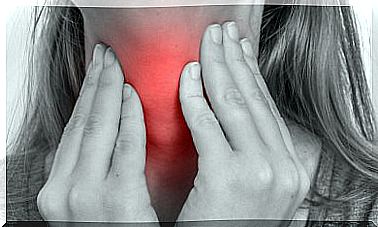Do You Want To Avoid Tooth Decay? Apply These 8 Recommendations
Although it is usually a fairly forgotten practice, flossing is very important to prevent food from remaining between the teeth, which can lead to cavities.

Caries is a very common disorder characterized by the destruction of dental tissues due to excess acids produced by bacteria that proliferate on the surface of the teeth.
The outside of the teeth is protected by a hard layer of enamel, while the inside is soft and contains nerves and blood vessels.
Since the decay affects the nerve, there is a high probability of suffering from pain and, in severe cases, the affected tooth can be lost.
It is estimated that at least 90% of the population suffers from it, mostly due to the stimulation of the Streptococcus mutans bacteria , present between the teeth and on the reliefs of the crown of the premolars and molars.
A large number of cases respond to lifestyle habits, that is, food, oral hygiene and the contact of the teeth with some chemical substances.
Because of this, it is essential to learn to take care of oral health, and to put into practice some recommendations to avoid bacterial growth and all kinds of complications.
In this opportunity we want to share 8 simple tips to prevent the development of cavities.
Put them into practice!
1. Increase the consumption of fruits and vegetables

Although it seems to have nothing to do with it, the daily consumption of fruits and vegetables is one of the healthiest ways to protect teeth.
Celery, carrots and strawberries are excellent natural supplements to clean the surfaces of the teeth without causing damage to their enamel.
For its part, the apple serves to strengthen, whiten and eliminate the remains of food that form bacterial plaque.
2. Get calcium
Natural sources of calcium serve to strengthen teeth, while reducing their weakness and risk of falling.
Its regular intake minimizes the loss of density and slows the growth of microorganisms that cause cavities.
Among the options are:
- Dairy (milk, yogurt, cheese)
- Green vegetables (broccoli, spinach, chard)
- The almonds.
3. Maintain good oral hygiene

Daily oral hygiene is one of the main keys to avoid the development of cavities and other bacterial infections.
Brushing your teeth after each meal, and before going to sleep, is essential to remove food debris and all kinds of substances that stimulate the growth of germs.
Both the toothbrush and toothpaste should be designed to achieve a deep cleaning of the teeth, tongue and gums.
4. Use dental floss
Although this recommendation is part of the previous one, it is necessary to make a special mention of it, since it is usually quite ignored.
Dental floss is a complement that allows you to eliminate everything that is trapped between the teeth and where the brush cannot enter.
Its use once a day is enough, although it is convenient to use it after eating foods such as meats and sugars.
5. Reduce sugar intake

Refined sugars, including candy and soft drinks, cause considerable damage to teeth and molars.
This substance feeds bacteria and creates an environment conducive to their rapid growth.
Furthermore, its excessive consumption can accelerate the deterioration of tooth enamel, which considerably increases the risk of infections.
6. Chew your food well
Something as simple as chewing your food well goes a long way in reducing the risk of cavities and bacterial infections.
This habit, which some do not put into practice, prevents food debris from getting between the teeth, especially when we do not have dental floss on hand.
7. Use mouthwash

Mouthwashes, both commercial and homemade, are a great help to complement the effects of daily oral hygiene.
These products are made with antibacterial and antiseptic ingredients that help eliminate bacteria that are concentrated in the mouth.
In addition, since they are refreshing, they are good options to neutralize bad breath.
8. Visit to the dentist
Regular visits to the dentist are the most effective way to reduce the risk of tooth decay.
While the above tips are helpful as a preventative, only the dentist can confirm that bacteria are not affecting the tooth.
In turn, these specialists have the necessary materials to clean teeth and all the treatments to keep them in perfect condition.
Follow all these recommendations in your daily routine and check that you can keep your teeth healthy and free of infections.
Along with this, avoid bad habits such as cigarettes and alcohol, as they tend to accelerate tooth decay.









